OUR LOW VISION SERVICES
At Yealy Eye Care, we provide specialized low-vision services to help individuals with significant vision loss maximize their remaining vision and maintain their quality of life. Our experienced optometrists offer personalized care and advanced solutions tailored to meet the needs of each patient.

Experiencing any of these Low Vision symptoms?
Sensitivity to light | Loss of peripheral vision | Unusual spots or floaters | Blurred vision
Night blindness or a need for more light than before | Difficulty reading
Rehab after vision loss | Macular degeneration | Glaucoma
We can help! Read below to see how
What is Low Vision?
Low vision is a condition where a person’s vision cannot be fully corrected with standard glasses, contact lenses, medication, or surgery. This can result from various eye diseases and conditions, such as macular degeneration, glaucoma, diabetic retinopathy, and retinitis pigmentosa.
People with low vision often experience difficulties with everyday activities like reading, driving, recognizing faces, and navigating their surroundings.
BOOK YOUR LOW VISION EXAM ONLINE
OR CALL OUR OFFICES IN Pennsylvania
We Offer Comprehensive Low Vision Evaluations
Our low vision evaluations involve a thorough assessment of your visual abilities and an understanding of how vision loss affects your daily life. We use specialized tests and equipment to determine the extent of your vision impairment and identify the best strategies to enhance your remaining vision.
Customized Low Vision Aids
We offer a wide range of low-vision aids designed to improve your ability to perform daily tasks. These aids include:
Magnifiers: Handheld, stand, and electronic magnifiers to assist with reading and other close-up tasks.
Telescopic Lenses: Wearable devices that magnify distant objects, making activities like watching TV and recognizing faces easier.
Specialized Eyewear: Custom-made glasses with special lenses and filters to enhance contrast and reduce glare.
Electronic Visual Aids: Advanced devices like CCTV systems and portable electronic magnifiers that provide greater magnification and image enhancement.
Living With Low Vision
Low Vision Aids in Lancaster
Retinitis Pigmentosa (RP)
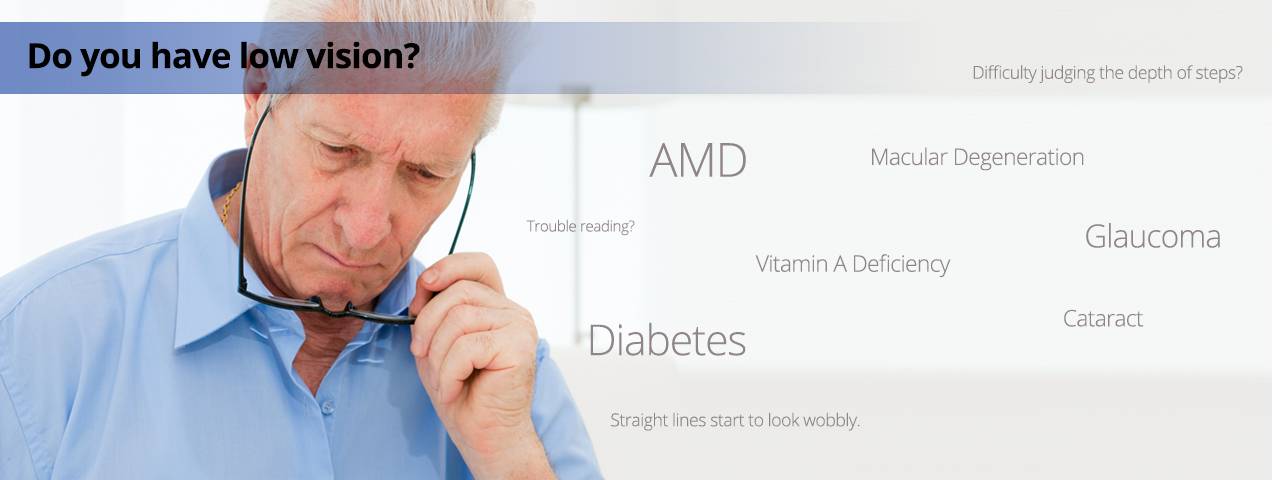
Living with low vision can be challenging, but with the right support and resources, individuals can lead fulfilling and independent lives. Our low vision specialists at Yealy Eye Care provide personalized care and rehabilitation services to help patients adapt to their vision changes. By utilizing low vision aids and developing new strategies for daily activities, we empower our patients to maximize their remaining vision and improve their quality of life.
Visit caring.com for more resources.
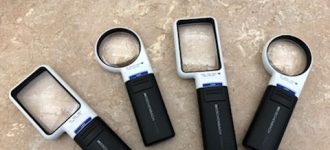
At Yealy Eye Care, we offer a variety of low vision aids to help individuals with significant vision loss. These aids include handheld and electronic magnifiers, telescopic lenses, specialized eyewear, and advanced electronic visual aids. Our team will work with you to determine the most effective devices to enhance your vision and assist with everyday tasks.
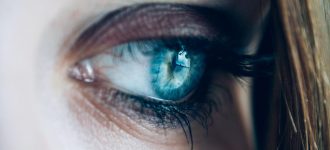
Retinitis Pigmentosa (RP) is a group of inherited eye conditions that cause progressive vision loss due to the degeneration of the retina. Symptoms typically include night blindness and a gradual loss of peripheral vision. Our low vision specialists provide comprehensive care and support for patients with RP, including the use of low vision aids and rehabilitation strategies to help maintain independence and quality of life.
.
Bioptics/Telescopic Lenses
CentraSight/Implantable Miniature Telescope
Driving With Low Vision
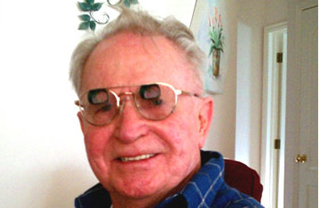 Bioptics and telescopic lenses are specialized eyewear designed to enhance vision for individuals with significant vision loss. These lenses magnify distant objects, making activities such as watching TV, recognizing faces, and driving more manageable. Our optometrists at Yealy Eye Care customize these lenses to meet your specific needs, ensuring optimal vision enhancement and comfort.
Bioptics and telescopic lenses are specialized eyewear designed to enhance vision for individuals with significant vision loss. These lenses magnify distant objects, making activities such as watching TV, recognizing faces, and driving more manageable. Our optometrists at Yealy Eye Care customize these lenses to meet your specific needs, ensuring optimal vision enhancement and comfort.
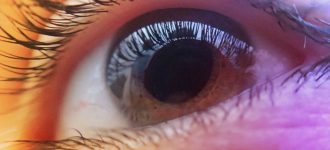
CentraSight is a treatment program that includes the use of an implantable miniature telescope for patients with end-stage age-related macular degeneration (AMD). This tiny device is surgically implanted into one eye to improve central vision by projecting images onto healthier parts of the retina. Our team provides comprehensive evaluations to determine if you are a candidate for this innovative treatment and offers pre- and post-surgical care to ensure the best outcomes.
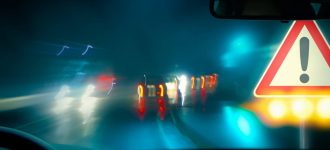
Driving with low vision can be challenging, but with the right tools and training, many individuals can continue to drive safely. At Yealy Eye Care, we provide assessments and recommendations for adaptive devices such as bioptic telescopic lenses, which enhance distance vision. We also offer guidance on state-specific driving regulations and resources for obtaining or retaining your driver’s license.
Age-Related Macular Degeneration (AMD)
Diabetic Retinopathy
Juvenile Macular Degeneration
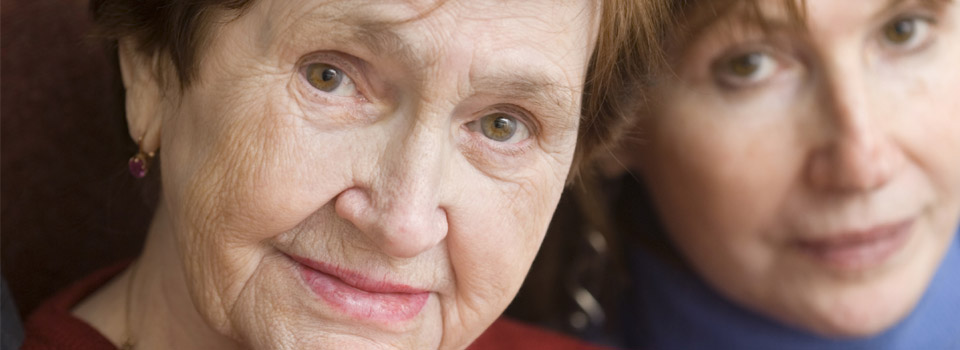
Age-related macular degeneration (AMD) is a leading cause of vision loss in older adults, affecting the macula, the central part of the retina responsible for detailed vision. Our low vision specialists provide personalized care for patients with AMD, including using low vision aids, nutritional counseling, and rehabilitation strategies to help maintain independence and improve quality of life.

Diabetic retinopathy presents no symptoms at the beginning, but over time, you may notice symptoms such as dark spots, blurry vision, many floaters, weak color vision, and fluctuating visual acuity. These complications occur because of extra sugar circulating through the bloodstream, which leads to a blockage of the small blood vessels in your eyes. The blocked vessels interfere with blood flow to your retina, and your eye attempts to remedy the situation by growing new, unhealthy vessels – which are weak and leak fluid. Treatment is available for diabetic retinopathy, particularly when diagnosed early. That is why we urge all patients with diabetes in Lancaster to book regular eye exams.

Juvenile macular degeneration affects central vision. Presently, this inherited eye disease has no cure. However, our Lancaster low vision specialist can offer a variety of vision aids and treatments to help each patient maintain independence and an active lifestyle.
Glaucoma
Cataracts
Stroke Victims

Glaucoma is a group of eye conditions that damage the optic nerve, often due to increased intraocular pressure, leading to vision loss. Our team offers advanced diagnostics, treatment, and management for glaucoma, including medication, laser therapy, and surgery. For patients with significant vision loss, we provide low vision aids and rehabilitation services to help maintain independence.

Cataracts are a common condition where the eye’s natural lens becomes cloudy, leading to blurred vision. While cataract surgery is a common and effective treatment, some individuals may still experience vision challenges. At Yealy Eye Care, we offer comprehensive pre- and post-surgical care and provide low vision aids for those with residual vision impairment after cataract surgery.

Stroke can result in vision loss or visual field deficits, impacting daily activities and quality of life. Our low vision specialists at Yealy Eye Care provide personalized care and rehabilitation for stroke victims, including visual field assessments, low vision aids, and strategies to adapt to changes in vision. We work closely with patients to enhance their remaining vision and support their journey to recovery.
BOOK YOUR LOW VISION EXAM ONLINE
OR CALL OUR Pennsylvania OFFICES
With significant vision loss, it can become challenging to complete common daily tasks including reading, writing, cooking, and housework, watching television, driving or even recognizing people.
When low vision is diagnosed it can come as a shock. Initially, it is an adjustment to learn how to function with impaired vision but the good news is there are numerous resources and products available to assist. Because low vision often results in one’s inability to work, function independently, drive and resume their normal life, many patients feel isolated and depressed.
If you or a loved one suffers from low vision, here are some ways to make life with low vision easier
- Adjust Lighting. Ensure that your home is well lit. This may require some trial and error with different lights and voltages to determine what works best for you.
- Use a magnifier. There is a vast selection of magnifiers available, ranging from hand-held to stand magnifiers. Binoculars and spectacle mounted magnifiers are also an option.
- Your optometrist or low vision specialist can recommend specialized lens tints for certain conditions such as retinitis pigmentosa or cataracts, which enhance vision or reduce light sensitivity.
- Use large print books for reading. Alternatively, try digital recordings or mp3s.
- Make use of high contrast for writing. Try writing in large letters with a broad black pen on a white piece of paper or board.
- Add a high-contrast stripe on steps (bright color on a dark staircase, or black stripe on light stairs) can prevent falls in people with low vision, and may enable those who suffer to remain independent in their home.
- Find out about what technology is available to help make your life simpler.
If you or a loved one has low vision, don’t despair.
Consult with our eye doctor in Lancaster about the best course of action to take to simplify life with low vision.

